Michal Kwiatkowski: A roller coaster first season with Team Sky
E3 Harelbeke victory and Vuelta's red jersey rare highlights in 2016 for former world champion
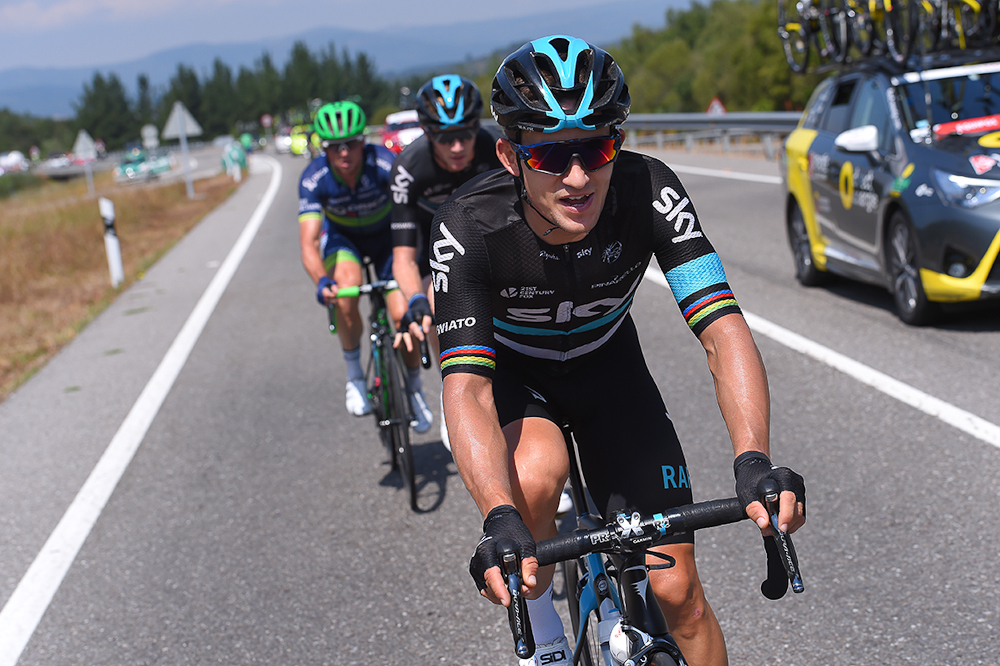
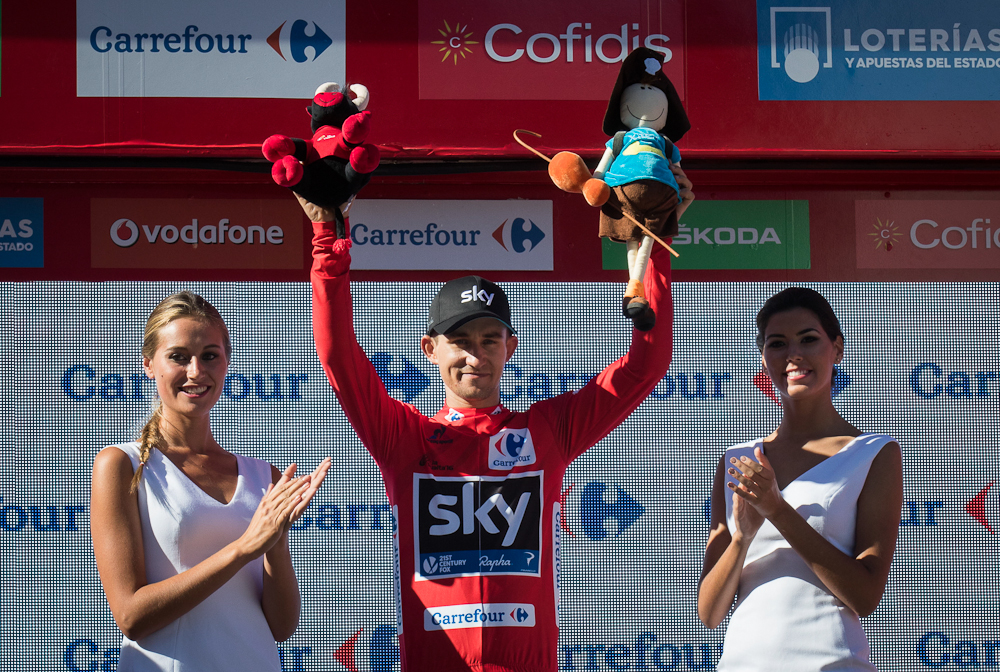
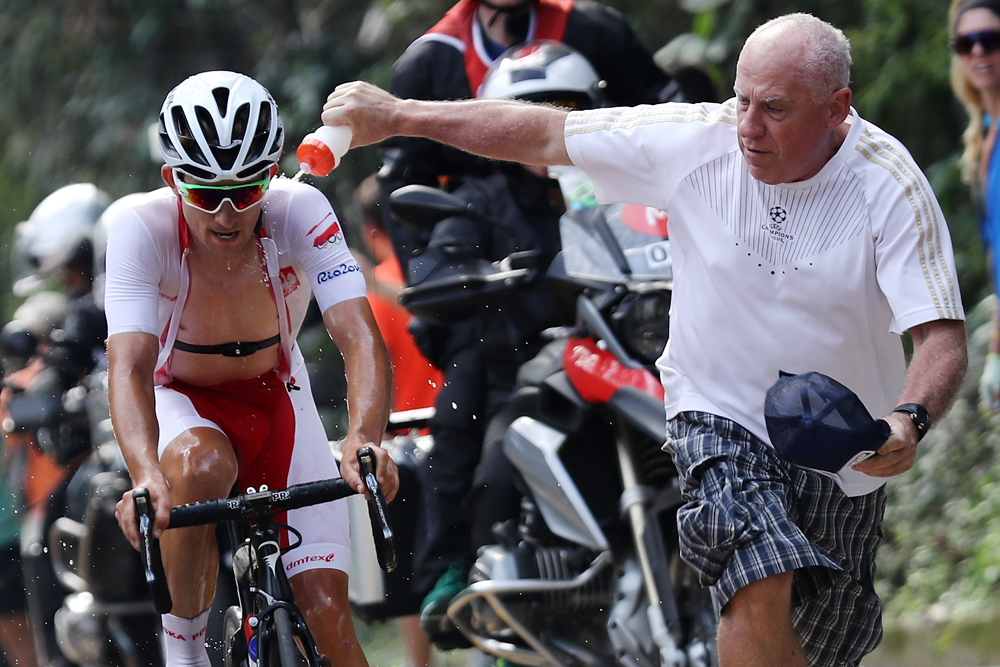
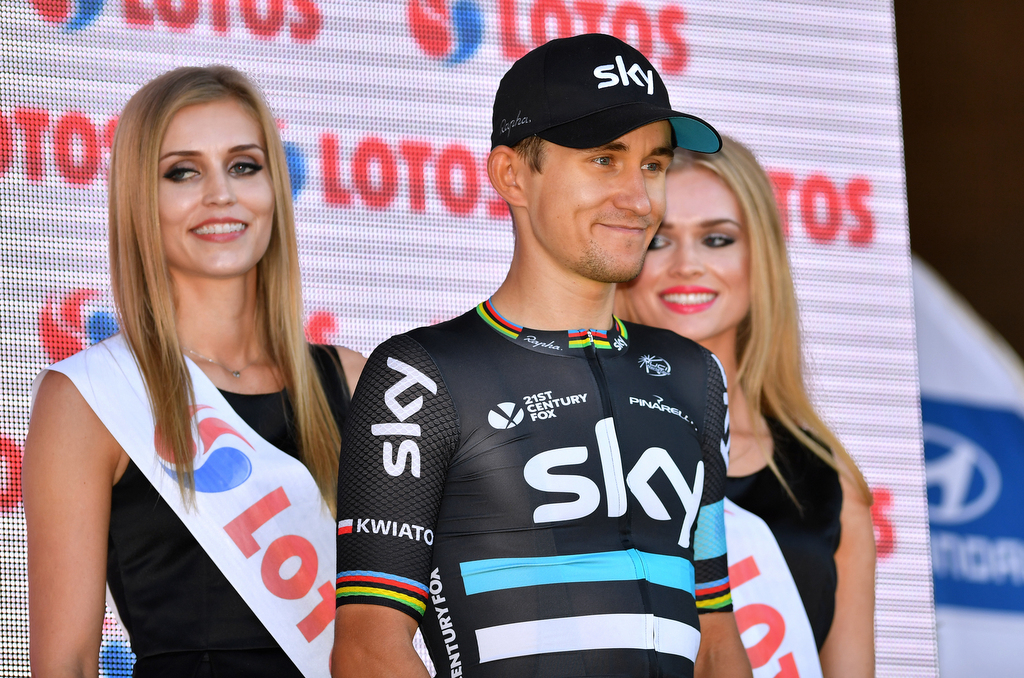
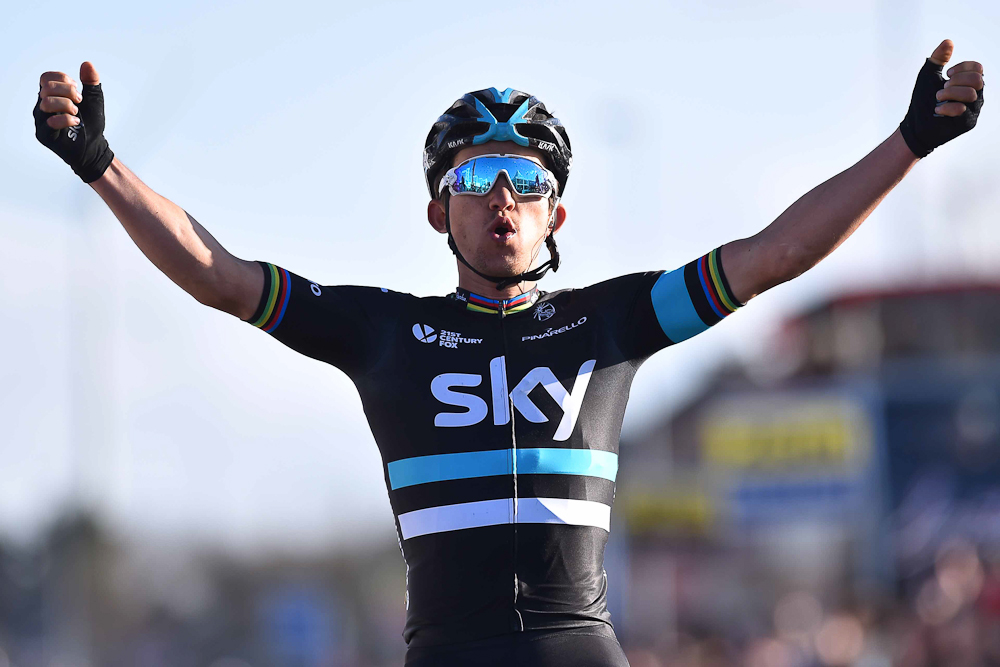
He does not speak much and rarely opens up to the media. Ever since entering the professional ranks, Michal Kwiatkowski has been a bit of a riddle. After a breakthrough season in 2013, highlighted by 11th place in Tour de France, a marvellous 2014 with rainbow stripes and Strade Bianche victory, Kwiatkowski seemed to lose the momentum and his old focus.
Kwiatkowski lays down Tour of Flanders marker with E3 Harelbeke victory
Cool, calm Kwiatkowski ahead of Amstel Gold Race
Kwiatkowski battles through illness to help Froome at Criterium du Dauphine
Kwiatkowski hoping to get season back on track at Olympic Games
Vuelta a Espana: Kwiatkowski leads Grand Tour for first time
Froome ready for mountains in Vuelta a Espana, but Team Sky lose Kwiatkowski
The move from Etixx-Quick Step to Team Sky at the end of 2015 season was a transfer hit, however the first year on Dave Brailsford's team has been probably less successful than the ambitious Pole would have hoped for. Kwiatkowski set the bar high, taking on new training workloads and trying to combine biggest cobbled classics with racing in the Ardennes, while at the same trying to earn a spot on the most competitive Tour de France squad and perform for the national team at the Olympic Games.
Staying on top of the game in a new environment with challenges of different sort proved to be somewhat too demanding for the Polish rider, who concluded the season with a precious victory in E3 Harelbeke and leader's jersey at Vuelta a Espana but yearning for more consistent performances in key races.
While neither E3 nor Vuelta were Kwiatkowski's main objectives, the 26-year-old's best performance was arguably the Olympic Games road race, where he orchestrated and executed the plan to mark the growth of Polish cycling with yet another memorable ride and a medal.
Target(s) in sight
Kwiatkowski signed for Team Sky as a classics specialist, and with a proven record of performing in stage races. On his palmares are the Volta ao Algarve (2014), and podium places in Paris-Nice (2015), Vuelta al Pais Vasco (2014), Tour of Britain (2014) and Tour de Pologne (2012).
Instead of following a well-beaten track of using spring stage races as a build-up towards the Ardennes and largely skipping the cobbles, the British team opted for Milan-San Remo and Ronde van Vlaanderen as primary reference points. Combining these objectives didn't go smoothly, however. The plan suffered a blow in the early-season as stomach problems left the Pole without racing kilometres in February and sidelined him from participating in Volta ao Algarve. With a strong showing in Mallorca after a hard winter of training, Kwiatkowski had only Tirreno-Adriatico to prepare for "La Classicissima".
Get The Leadout Newsletter
The latest race content, interviews, features, reviews and expert buying guides, direct to your inbox!
The young Pole was never a first-tier finisher on the Mediterranean coast of San Remo. During previous editions, he suffered in the bad weather, crashing on the descents. This time he made it all the way to Poggio and launched an all-in attack, attempting a daredevil solo raid on the technical descent. Closely watched by rivals, he was unable to gain much ground and had to surrender inside final two kilometres. However frustrating the lack of result was, being able to put on an attack in the final of a Monument heralded finding the form ahead of a season of cobbles.
Choosing only to take part in E3 Harelbeke and Ronde van Vlaanderen was a part of a plan to combine chasing victories in both major Flanders hallmarks and Ardennes – a challenge no other rider in the peloton took up this year.
After two years of racing in Basque Country, the only cobbled point of reference for Kwiatkowski was his venture on the course of the Flanders' Finest in 2013. Back then, aged just 23, he rocked the day's breakaway and, for a short while, was able to hold on to the wheel of Fabian Cancellara, who stormed on to win the race.
This April, beating Peter Sagan to the finish line in Harelbeke put Kwiatkowski into the position of one of the contenders ahead of Tour of Flanders. The first victory in Team Sky's jersey was, however, the last high point of the spring as "Kwiato" lacked power in De Ronde and was not able to perform at the highest level in the rainy Ardennes two weeks later.
This development was not completely unexpected. During the Etixx years, Kwiatkowski seemed to struggle with completing the Ardennes triptyque – strong performances on Cauberg and Chemin de Chapelles were usually not matched during Liege-Bastogne-Liege. The 2015 season and his first year with Team Sky followed a similar pattern – he took major victories in Amstel Gold Race and E3 Harelbeke but seemed to be running out of steam in April, especially while racing in poor weather conditions.
This year his withdrawal from Tour de Romandie closed the spring season and subsequent preparations for Tour de France were hampered by laryngitis picked up during the Criterium du Dauphine. This cost him his place on the Tour team and upset the season plans a month ahead of the Olympic Games.
One for all, all for one
Coming to Brazil only after competing in Tour of Poland, Kwiatkowski was determined to deliver for the national team. And he did, just like the team did for him in Ponferrada. His effort and sacrifice for his teammate was in part missing from the television coverage of the Olympic Games, yet as Rafal Majka collected the bronze medal in the road race, Kwiatkowski received credit for making the whole thing possible.
Polish fans' wishful thinking of having a rider who climbs with the best and descents like a madman came true on the day as one's skills complemented the other's climbing prowess. If Majka was the surfer on Brazilian roads, Kwiatkowski was the two-wheel surfboard. The sheer pursuit of perfection in every technical aspect of the descending craft, combined with boldness hidden behind every look of this introverted rider shepherded Majka downhill the penultimate climb of Vista Chinese and put him in the right position.
Tinkoff rider didn't follow Christopher Froome in trying to mimic Kwiatkowski's pedalling style on a descent, yet his ride still gave Poland a bronze medal. Dramatic events on the narrow road towards Copacabana left the Pole frightened even thinking about this part of the race. Majka reluctantly recalled following his countryman on the penultimate descent, in light of Vincenzo Nibali and Sergio Henao's crash realising how much he and "Kwiato" risked.
"We went fast… I don't want to talk about it. Later, I crossed myself before the last descent", he would later tell Polish national television with a mix of tiredness and fear on his face.
My way
With an Olympic Games under his belt, Kwiatkowski started getting his mojo back in time for the Spanish Vuelta. Part of a squad that rode Peter Kennaugh into the leader's jersey in the opening time trial, he spent the first week working for Christopher Froome, highlighting the event with assuming the overall lead for a day and being the first ever Pole to do so. A crash in stage 6, however, sent him out of the race with badly bruised back, adding to his run of bad luck over the year and rendering any top performance virtually impossible in races leading up to the world championships.
A few years ago, on the eve of first successes, Kwiatkowski impressed not just with the results but by stressing a step-by-step approach, acknowledging that in terms of training and preparations he still has a long way to go. The Pole, reluctant to discuss the causes of poor form and inconsistencies, has continued this line and remained upbeat despite a mix bad luck and somewhat slow acclimatisation to the new environment.
"I spent a lot of time with the team. They know my approach and how I apply myself to every training. I'm no robot, I'm human and I had some hard times this year. Hopefully, that's over," he said in July when asked about the rough ride through the first few months of 2016.
Dealing with pressure, expectations and acclimatising in new environments, as well as developing on the top level at a relatively young age is a part of a broader picture in the contemporary peloton. Riders often coming straight out of the U23 ranks are given the chance to shine in the world's top races – a big shift if one considers the way teams operated even 10 years ago. Finding a balance in this new setting is something a number of riders have struggled with, often finding that being able to perform to the fullest of their potential usually involves certain refurbishments and embracing difficulties coming with a quick promotion to the top league and growing popularity.
While the 2016 season doesn't necessarily have to fall into the category of repeated mistakes, Kwiatkowski has a lot to analyse. On one hand, bad luck aside, his performances have not been as consistent as he would have wished for. On the other, the reasons behind it seem far from clear. In finding his own path he may look up to his peer Sagan, who, after early success and some immature off-bike performances, managed to break the string of second places and bounced back to become the sports' most recognisable ambassador and a champion. If Kwiatkowski is capable of finding his own path, the duo may be soon answering questions about junior races and retweeting pictures from 2008 once again.